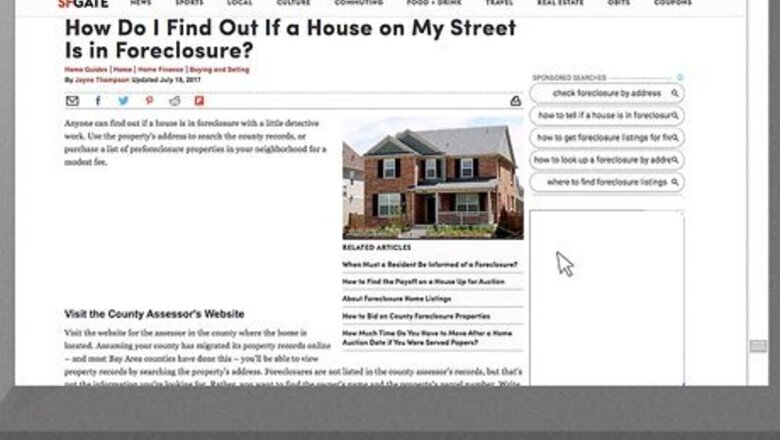
views
X
Research source
When a home in your neighborhood goes into foreclosure, your own property value can be affected. Find out if a home is in foreclosure by checking the records held with your county recorder or public auction companies.
Searching When You Know the Homeowner's Name
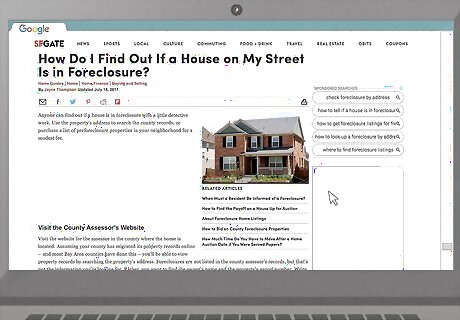
Visit your county's recorder's office. Your local offices will have information on all of the homes in your community. You can find your local recorder's office in the phone book, or by searching online. Once you've found your local records office, you can search for the property by the homeowner's name. Some offices maintain their records in print form, while others have switched to digital archives. Don't be afraid to ask the office clerk if you need assistance. Try checking back on a weekly or monthly basis, as records tend to be updated fairly regularly.
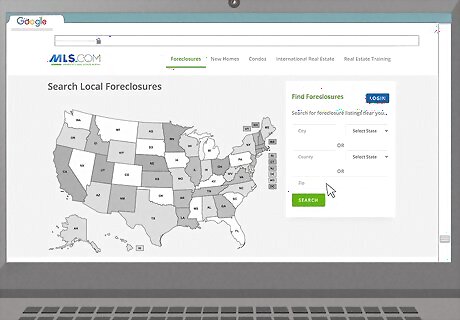
Check public auction listings. These listings are available online and in your county's recorder's office. These listings typically include both the street address and the homeowner's name. Try searching online for real estate listings in your area. You can use a real estate advertising service like http://www.mls.com/ForeclosureListings/, or try an online real estate database like Zillow. Online databases like Zillow typically allow you to search using filters. Just select "Pre-foreclosure" while searching for home listings in your area. Searching for pre-foreclosure homes allows you to see property listings that have not yet been brought to market but whose homeowners are currently in default on mortgage payments.

Try contacting your neighbor. If you know your neighbor and fear that his home is being foreclosed, you may want to try talking to him, if you're comfortable doing so. Perhaps the rumors you heard about his impending foreclosure were false, or perhaps your neighbor did default on his mortgage but was able to get caught up on his payments. Either way, if you have a good relationship with your neighbor, speaking with him directly may save you a lot of time and trouble.
Searching When You Don't Know the Homeowner's Name
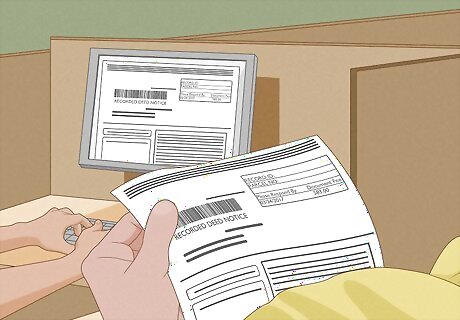
Search for the address or parcel number at your local records office. Your county recorder’s offices will have information on all of the homes in your area. You can find the phone number for your area’s designated office by searching online.
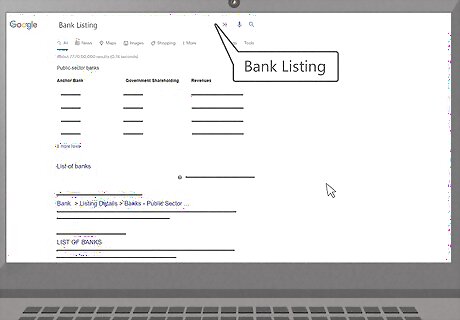
Check bank listings. Most banks run a searchable database of foreclosed, pre-auction homes. You can narrow your search by state and city or county to see a comprehensive listing of each property a given bank is selling. Use an online search engine to find banks with foreclosure listings in your area. Narrow your search by selecting the city or county you reside in.

Contact your local property tax authorities. You can ask for information about the property if you know the address. There's no guarantee that your local tax office will know about all of the impending foreclosures, but some tax authorities will know based on whether or not a mortgage lender has inquired about that property's taxes.

Speak with your local real estate agencies. Some real estate agencies deal extensively with foreclosures. Find out which agencies specialize in foreclosed estates, then ask a real estate agent about the address that you believe is going into foreclosure. There is a good chance that the agents at that office will know about any impending foreclosures in your area, and can provide you with more information.

Search online. In the United States, the Department of Housing and Urban Development maintains a comprehensive listing of foreclosed homes in a database that can be easily searched online. Visit http://ushud.com/ if you're searching for a home in the United States. Enter your zip code and browse the listings to see if an address you're worried about has been included in the list. If you live outside the United States, search online for your national or regional housing offices.

Check your local newspapers. Many auction companies advertise recent foreclosures and upcoming auctions in print ads in order to draw more potential buyers. Check the paper on a daily or weekly basis to look for updates on foreclosed properties and auctions. Newspapers in the property's county are required to publish a listing of homes slated for auction. Typically listed as a Notice of Sale, these listings run regularly over varying periods of time, depending on where the auction is held. In some states the listing will run for a period of three weeks, while in other states the listing must run at least once every week for a period of five weeks.
Understanding Foreclosure
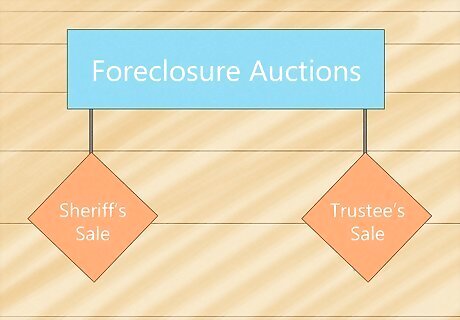
Know the facts. Foreclosure is the process by which a mortgage lender sells or auctions off a piece of property to recover the losses from a mortgage loan that has been defaulted. Who sells the property depends on the terms of your mortgage. Most mortgages will specify that the bank earns the right to foreclose on the property if the homeowner fails to meet the agreed upon repayment terms. In some states the foreclosure auction may be run by the local sheriff's department, called a Sheriff's Sale. Some states permit the lender to foreclose without having to go to court or involve the sheriff's department. These foreclosures are called a Trustee's Sale, and typically involve a trust deed instead of a mortgage.

Understand who is at risk. Anyone who defaults on a mortgage runs the risk of having the property foreclosed. A homeowner is considered to have defaulted on the mortgage after one month of missed payments. After a payment is 10 to 15 days late, lenders may begin to tack on late fees. The homeowner then typically has an agreed upon grace period in which to make up the missed payments plus all accrued late fees before the lender may begin the foreclosure process. Some mortgage lenders will allow borrowers to work out a special forbearance, which adjusts the terms of the mortgage to avoid going into foreclosure.
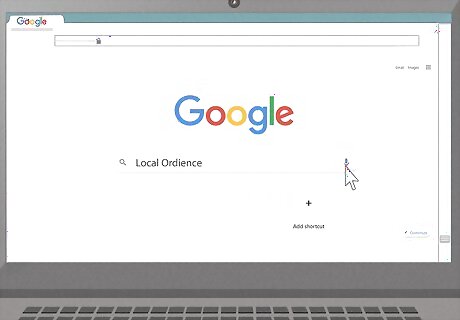
Know your local ordinances. In some places, a homeowner who has lost his home due to foreclosure has up to 12 months to acquire the necessary funds to buy back a foreclosed home. This is good for the homeowner who initially defaulted on his loans but bad for investors, who may buy a foreclosure property only to lose that property within a few months of the auction. This is known as the redemption period. Generally banks will not resell a foreclosed property during the redemption period and will maintain the property during this period of time.

Understand the effects of foreclosure. Foreclosure of one home can affect the entire neighborhood. Having a neighborhood house foreclosed on can affect the property values of surrounding homes, as potential buyers may shy away from buying into the neighborhood. A foreclosed home may also fall into disrepair, which can make the property less appealing to potential buyers.

















Comments
0 comment